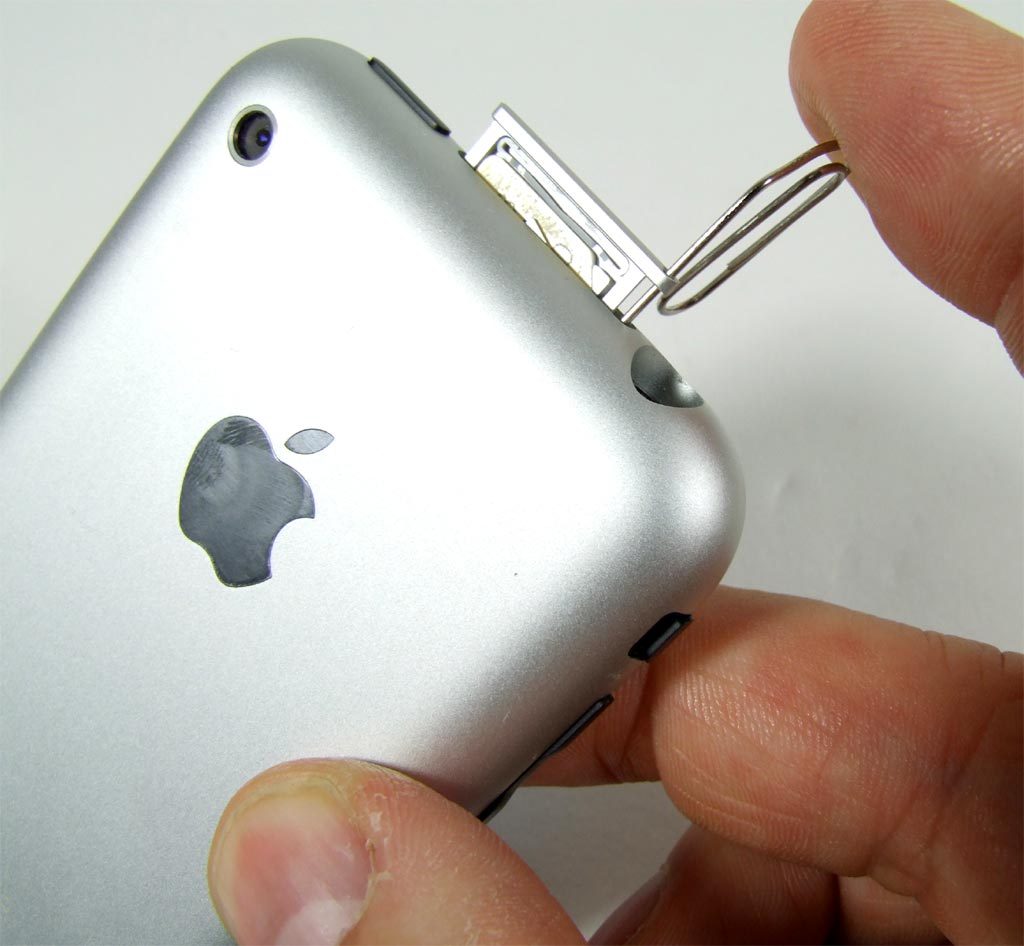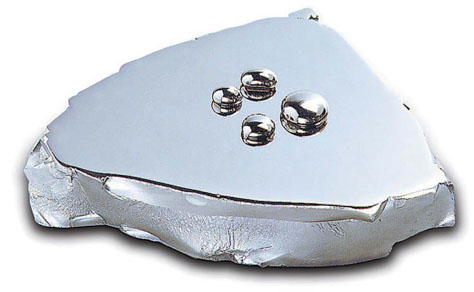Apple Signs Deal for Liquidmetal Alloy [UPDATED]
Isn't this what the T-1000 was made out of?
UPDATE 17 Aug, 2010: Word is that Apple has dabbled with liquid metal before in a previous iPhone part -- the SIM ejector tool. I've pulled one from one of our old iPhone 3G boxes and found it to be many times stronger than any stainless steel paperclip I have on hand.
Now Apple just needs to implement this metal on more structurally important things, like the iPhone casing or the MacBook Pro unibody.
Apple has secured the rights to an advanced form of metal that could replace the company's use of glass backings in its phones and media players as well as the aluminum casings of its computers.
Liquidmetal Technologies has agreed to give over all the rights to its metal alloy technologies over to Apple for making things relating to electronics.
What's so special about this metal, you ask?
- With approximately 2.5 times the strength of commonly used titanium alloy and 1.5 times the hardness of commonly used stainless steel, Liquidmetal alloys enable sophisticated, engineered designs required by the evolution of new technologies
- Enables thinner, smaller designs while providing greater protection for internal components
- Permits thinner walls while providing greater strength
- Allows larger, wider screens for expanded features and capabilities
- With precision net-shape casting, Liquidmetal alloys can be readily fashioned into intricate, innovative designs resulting in a unique aesthetic advantage
- Excellent durability
- Scratch and corrosion resistant
- Non-reactive
While the aluminum that Apple uses on its computers right now is lightweight and attractive, it's a still a soft metal that's easily prone to scratches and dents.
Liquidmetal Alloy was developed by a research team at the California Institute of Technology and has been used commercially since 2003 in sporting equipment and electronics such as the Nokia Vertu. It's also employed by the U.S. Department of Defense and NASA.
Get Tom's Hardware's best news and in-depth reviews, straight to your inbox.
Apple's agreement with Liquidmetal means that the only electronics and computers using this metal will be from the Cupertino company, though anything outside that will still have access to the alloy technology.
(Source: AppleInsider.)
-
the_krasno Too bad now it's owned by the likes of Apple. This thing should be open, it would be better for customers.Reply -
phantomtrooper duh its owned by apple. they are obviously the ones going to make the t-1000 since they are the evil company. the t-1000 will start out by being the apple enforcer, but soon it will turn on them and all humankind. lolReply -
Vitreloy has been around for years - also it's not liquid (at room temperature) - so really what's newsworthy here? Just another shallow Apple story that is made to sound like a big deal when it really isn't.Reply
-
tsnorquist John Connor: So this other guy: he's an Apple like you, right?Reply
The Apple: Not like me. A T-1000, advanced prototype.
John Connor: You mean more advanced than you are?
The Apple: Yes. A mimetic poly-alloy.
John Connor: What the hell does that mean?
The Apple: Liquid metal. -
Drag0nR1der IBM 'evil genius' super computer: "I want you to go back in time and kill John Conner"Reply
iT-1000: "I'm sorry, I may only go back to the 3 time periods, and target the two people, specified by my system designer"


